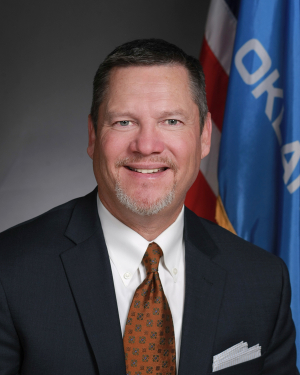The 2022 legislative session began on Feb. 7. Nearly 800 pieces of legislation were filed by members of the Senate for consideration this year, with almost that many bills carried over from last year. It’s important to work as efficiently as possible to move those bills through the process and complete our work in an orderly, timely way.
Until the late 1980s, legislative sessions actually began in January, as directed by the state Constitution, but there was no set date by which the session had to conclude. There were some years when July 1 arrived, and legislators still hadn’t concluded work on the budget. Agencies had no time to prepare for any changes in their appropriations. The governor at that time, Henry Bellmon, championed a state question to shorten the session, which was approved by voters. It moved the beginning of legislative sessions to the first Monday in February and mandated that the session must conclude no later than 5 p.m. on the last Friday in May.
In order to keep the legislative process on track, the chambers adopted a series of deadlines to keep the bills moving. The first six weeks or so of the session are focused on committee and floor consideration of legislation that started out in that particular chamber. After the deadline for floor votes, we would begin committee work, then floor votes on bills that started out in the House, and vice versa.
For the past several years, few, if any bills were heard during the very first week of session as they were still being assigned to committee. The problem was, it often resulted in backlogs as we approached deadlines for action on bills, causing long days that stretched late into the night in order to complete votes on hundreds of bills before time ran out.
This year, our leadership has focused on making the legislative process more efficient, which I believe will enhance our efforts to improve transparency. By the time the session began this year, every single bill had been assigned to committee, and those committees began meeting the very first week. Ensuring we hit the ground running from the very first week will help more evenly distribute the workflow throughout the session, giving members and the public more time to review legislation before its voted on. I think that is essential for everyone involved in the process.
Later this month, we will also have the final certification from the Board of Equalization (BOE), which determines how much revenue will be available for appropriation for the next fiscal year. Their initial certification in late December indicated the Legislature would have more than $10.3 billion to appropriate, which is the highest amount ever to be certified. While this is positive news, it needs to be pointed out that only about $9 billion comes from recurring revenues, while nearly $1.3 billion is one-time carryover funds and special cash from previous sessions.
As vice chair of the Senate Appropriations Committee, I believe it is important that we continue to take a fiscally conservative approach to the budget. One-time funds should help us further increase our state’s emergency savings and should be considered for targeted investments that can move our state forward—we cannot count on those funds for continuing expenses. Taking a thoughtful, measured approach to the state’s budget will leave Oklahoma much stronger for years to come, and help us to better mitigate any economic downturns that may occur in the future.
Please feel free to contact my Capitol office with any questions or concerns you may have about legislation or other issues impacting our state at 405.521.5628 or at Chuck.Hall@oksenate.gov.




Be the first to comment on "Sen. Hall: Making the legislative process more efficient"